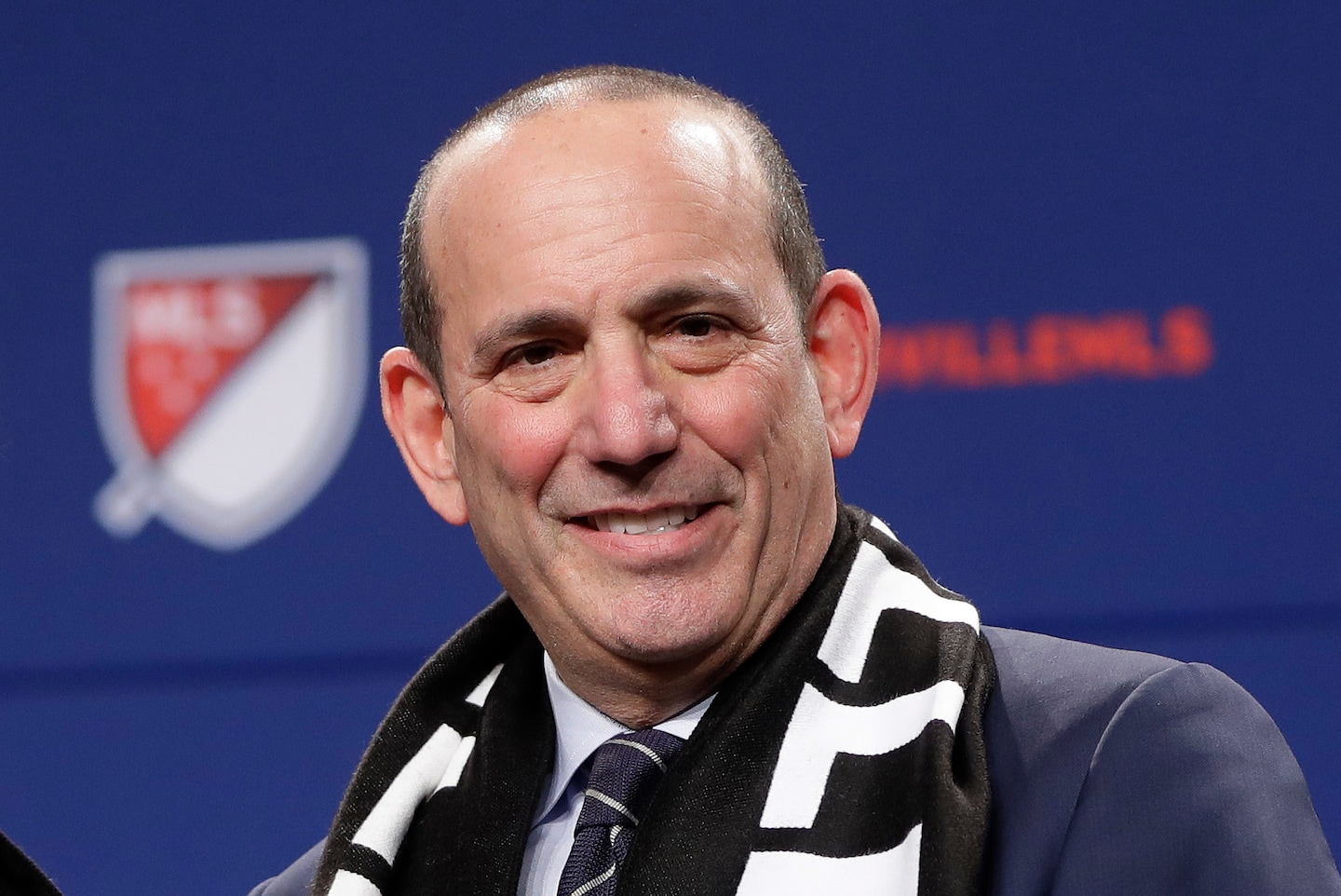MLS announces regular season will resume in home markets this month

On Saturday, the league announced plans to return to stadiums around the country in an effort to complete the regular season by Nov. 8, followed by the playoffs and MLS Cup on Dec. 12. Each team will play 18 additional regular season matches: six in each of three phases.
“We understand getting back to play is going to have some challenges,” Commissioner Don Garber said during a call with reporters. “We’re aware of those challenges. We are prepared for it. We understand it’s not going to be easy. We know we might have some issues that are going to disrupt us, might even force us to postpone games. We are aware of the need to be flexible.”
The first activity, however, will take place Wednesday and next Sunday in Frisco, Tex., between FC Dallas and Nashville SC, the only teams that did not participate in the MLS is Back Tournament because of numerous cases of covid-19, the disease caused by the virus, upon their arrival in Florida. They need to begin making up three tournament matches that counted toward the regular season.
The Dallas organization said it would allow up to 5,110 spectators at 20,000-capacity Toyota Stadium, pending league approval. Masks would be mandatory, and socially distanced seating would be in effect.
In most cities, where local guidelines prohibit large gatherings, matches in the first phase will take place without spectators.
United said it will not open Audi Field to fans in the first phase — the city wouldn’t allow it, anyway — but will “continue to evaluate the possibility” of welcoming crowds in the fall. All decisions will be made in conjunction with city government and health officials.
United’s first home game in the first phase is Aug. 25 against New England. It will visit Philadelphia on Aug. 29 and the New York Red Bulls on Sept. 2, then host New York City FC on Sept. 6 and the Red Bulls on Sept. 12.
MLB is playing in home markets without fans, and some teams in soccer’s second and third divisions (USL Championship and League One) have welcomed fans in restricted numbers. Louisville’s most recent match drew 4,850.
“If there is a state that has laws or guidelines that have been put into the place already allowing fans,” Garber said, “we will consider [proposals] from teams.”
Asked why MLS would risk spreading the virus by inviting fans, Garber said: “Playing matches with fans in local markets is a step toward some sense of what the new normal in sports is going to be. We have to start; we have got to give it a try.”
Unrelated to the fan issue, both MLB and those other soccer leagues have had to postpone several games because of coronavirus outbreaks among players and staff. Operating in bubbles, MLS, the NWSL, the NBA, the NHL and the WNBA have fared well. Only MLS will play in both a bubble and home markets this year.
The MLS playoffs, involving 18 of the league’s 26 teams, are scheduled to start Nov. 20. At the moment, the league plans to stage the final in a participating market, as it has for several years. Last year, 14 of 24 teams made the playoffs.
The league said it would announce the remainder of the regular season schedule in early September.
Because of travel restrictions between the United States and Canada, the league did not announce any matches in the first phase for Toronto FC, the Montreal Impact and the Vancouver Whitecaps. In all likelihood, those teams will initially play one another, then temporarily relocate to the United States, similar to MLB’s Toronto Blue Jays.
In its announcement, the league said it will continue to work closely with infectious-disease advisers. Players, coaches and staff will continue to undergo testing every other day, including the day before each match. The league also said it will provide guidelines to teams to “avoid the risk of contracting and spreading covid-19 during their time away from club facilities.”
To further mitigate risk, teams will not travel long distances as much as usual and they will fly exclusively on charters. (Teams usually face annual limits on using private jets.) In many cases, teams will arrive in the host market on the day of the game and depart immediately afterward.
“I don’t think life can stop,” Garber said. “I’m confident we have a good plan.”
Carlos del Rio, an Emory University professor who specializes in infectious diseases, said he reviewed MLS’s in-market protocols. “They are doing the kind of protocol I’d put together myself,” he said in a phone interview. “They are doing fairly aggressive testing, which will be critical.”
He also praised MLS’s travel plan, which differs from MLB’s in that teams will rarely visit cities for more than a day. “The risk of staying at a hotel, the risk of the players going outside in an unknown city, is significantly decreased,” del Rio said.
As for allowing crowds, del Rio said, “Fans will need to wear masks, and if I were a fan, I would probably also wear a face shield or goggles.”






